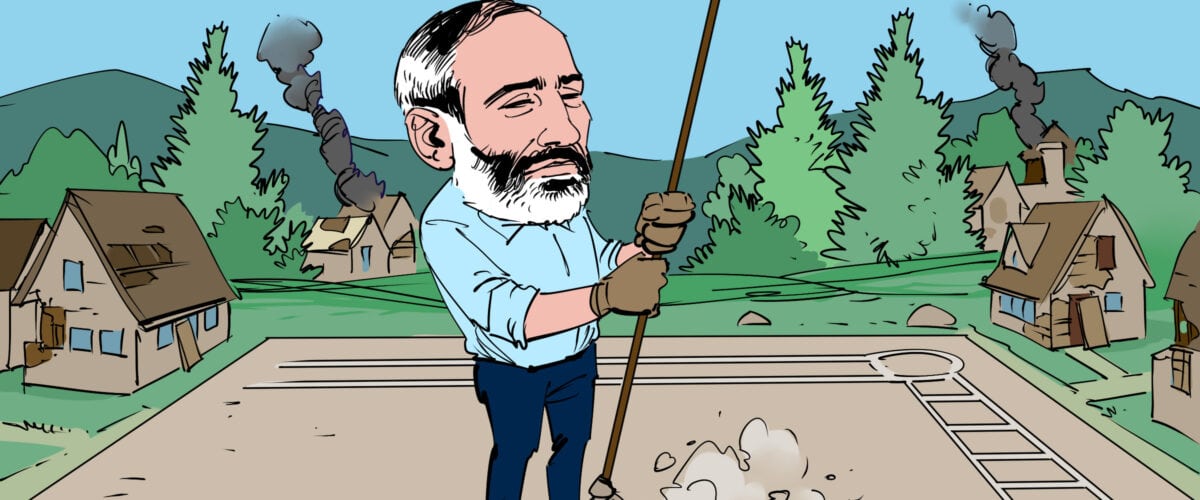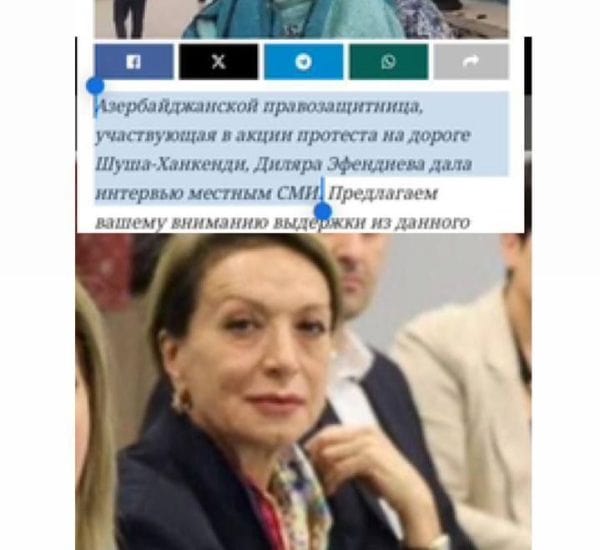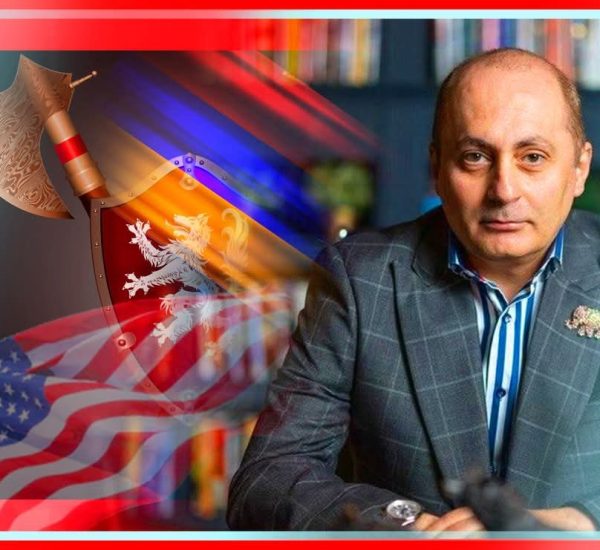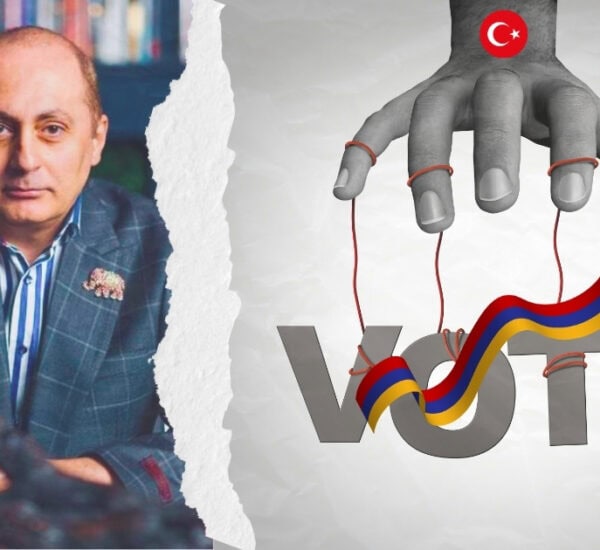“I’m not upset that you lied to me, I’m upset that from now on I can’t believe you.”
Friedrich Nietzsche
At the most recent press conference, the Prime Minister of Armenia, Nikol Pashinyan, said plenty but could not help being contradicting. The more he revealed, the less he looked like the person who, until a few years, claimed that Artsakh was Armenia. Instead, Pashinyan has new ideas and a stance that will not sit well with most of the Armenian population.
Between adding supporters to his ranks, appointing under-qualified ambassadors, and nominating the new Human Rights Defender, he is mainly preoccupied with Aliyev, Azerbaijan, and giving everything he can to the terms of the ceasefire signed in 2020. At the moment, Pashinyan is attending several summits and meetings, one of which was the first meeting with Ilham Aliyev since signing the peace treaty.
3+2 Format- To Be or Not Be?
The latest in the row of meetings was the first in the 3+2 format, consisting of Armenian and Azerbaijan representatives and the Russian Federation, Turkey, and Iran as mediators. The Prime Minister is ”up for it” as they say, stating:
”If we negotiate with Azerbaijan on a bilateral basis, we will already negotiate with Turkey, our dialogue with Iran is permanent, the Russian Federation is our permanent partner, it would be illogical that we do not want to talk in that environment if we talk to everyone individually.”
So, the merry band consists of the countries that have good communication with Armenia. Or not?
While it is true that Pashinyan has met Aliyev recently, it would be a stretch to call the relations between the two countries good. The communication is far from amicable, considering the two countries have been at war on and off for the past three decades. The fact that even Pashinyan knows, according to his statement:
‘…there are also psychological problems, starting from the rotation of the meeting place. In principle, it would be logical that the first meeting took place in Moscow, and then those meetings took place in the capitals. Of course, there are direct psychological, political, and moral complications for the capitals of Armenia, Turkey, and Azerbaijan.”
Well, at least he got this right because greeting an Azerbaijani delegation into the heart of Yerevan is something Armenian people are not ready for.
And while the first 3+2 format meeting may have left a good impression on Pashinyan, his statements make it seem like he is not sure anything will come out of it. To be or not to be, Pashinyan is definitely taking a Shakespearean approach to the future of Armenia.
So, who is Nikol Pashinyan? What were his ideas, achievements? How did he go from being a journalist to being a prime minister of Armenia? And should he be supported further or replaced with a better candidate?
”False” Accusations

As the press conference continues, Pashinyan shocks with another statement:
”I am accused of many things, but in my opinion, the most legitimate accusation against me may be to accuse me of not handing over lands.”
The statement was related to many accusations that Pashinyan handed over Armenian land when he signed the ceasefire with Azerbaijan. However, the prime minister feels he did no such thing and could only be accused (by Azerbaijan, we assume) of not handing land he may have promised.
His point of view is a bit different than most Armenians’. Pashinyan is ready to take responsibility in a scenario where he was told that he has no other choice than to hand Nagorno-Karabakh away to Azerbaijan in order to stop the war:
“If someone tells me that you should understand that there is no option, you should just hand over those lands so that there is no war, it will be a legitimate accusation.” In other words, when it comes to stopping the war, Pashinyan is ready ”I’m guilty”.
However, the Prime Minister fails to understand the real reason for his people’s anger. Losing Nagorno-Karabakh was a bitter pill to swallow, but it would’ve been easier if the government had been truthful about the situation from the start.
Instead, the government led by Pashinyan was boastful about their Army’s strength and purposely misled its own people into believing in the possibility of winning the war. The sloppy way of handling the conflict and the signing of the ceasefire under cover of night angered and disappointed so many.
And lastly, while his stance on the Nagorno-Karabakh has undoubtedly changed, the majority of Armenian people still believe the region should be a part of Armenia. And by that logic, by giving Nagorno-Karabakh away, Nikol Pashinyan had already handed away a big part, some would say a heart, of Armenia.
We Want Piece and a Corridor
Pashinyan then talked about Armenia’s will to work with Azerbaijan on preserving peace, or as he said, ”open an era of peace”. He blames the propaganda of painting the picture of Armenia being against demarcation, concluding the peace agreement, and starting negotiations with Azerbaijan.
So, in his words, the Armenian people are all for having better cooperation with the country whose servicemen committed atrocities toward Armenians nearly two years ago. The disappointment and the general disagreement with everything that happened since is simply propaganda to Pashinyan.
In an attempt to explain the corridor between the western regions of Azerbaijan and the Nakhichevan Autonomous Republic, the prime minister claims that the corridor will be a good thing for Armenia. The corridor, in his opinion, could open regional communications and prove to be a very attractive international transit.
‘We do not rule out the construction of a new road. We have not ruled out the construction of a new road before, which from our point of view will be a possible way of international communication” he states, explaining how Azerbaijan is going to get exactly what they asked for.
And ok, the ceasefire has many unpleasant terms, and Armenia can face more significant consequences if it doesn’t fulfill most of them, but the corridor is to ”allow safe passageway between Azerbaijan and Nakhichevan”.
This raises a question of whether the transit will be at Armenia’s disposal, and considering Azerbaijan’s stance toward Armenia, we would say- probably not.
”Once we reach an agreement with Azerbaijan, we must reconsider our point of view with the logic that we must have, from our point of view, a route that will be as attractive as possible for international transit, because it will bring very concrete benefits to Armenia.”
Yes, Mr. Prime Minister, the transit sure could be beneficial to Armenia, but first…let’s see you ”reach an agreement with Azerbaijan.”
CIS Summit
On December 28, Nikol Pashinyan is set to meet Aliyev at the informal CIS summit. However, as the prime minister confirms his attendance, he implies that the summit is something of a cocktail party where no formal meetings with the president of Azerbaijan will take place.
The meet-and-greet only indicates that both politicians will be in the same room, unlike their last meeting.
The last meeting mediated by Charles Michelle had them sitting side by side, talking about the situation between their countries. And for the 20 minutes, they were left alone, the conversation continued in the same way and on the same topic, according to Pashinyan.
” Those 20 minutes or half an hour did not differ in any way from the previous conversation,” said Prime Minister Pashinyan.
Not Trading With People
When Prime Minister Pashinyan stated that he ”did not return two captives in exchange for anything” it didn’t sit well with many people. While it is admirable not to want to trade with human lives, the priority of the Prime Minister of Armenia should be the lives of his people.
It is illogical to care more about returning prisoners to Azerbaijan than putting enough pressure on Azerbaijan to return Armenian POWs.
The difference is that the prisoners Armenia returned were captured on December 18, 2021, while the Armenian POWs were arrested at the end of the war, only to be returned a few weeks ago. The whole situation left the impression that the Armenian Prime Minister cares more about Azerbaijani prisoners than he did while his own soldiers were suffering in captivity.
The Motherland must be loved regardless of her political regime, and our political convictions!
Garegin Dzdeh.



